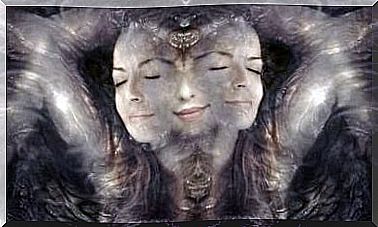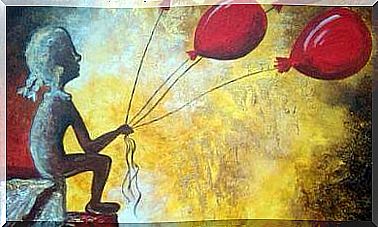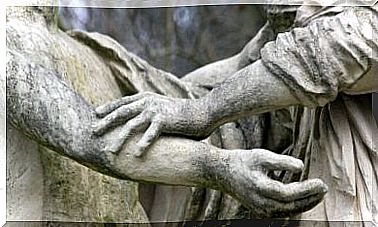Seneca And His Thoughts On Anxiety

You may not think so, but people have been talking about anxiety since Seneca lived. He was a philosopher at the dawn of Christianity. They did not call it the same thing and they did not carry out the scientific psychological studies that we are doing now. But even if there were no psychologists, the philosophers of that time devoted themselves to thinking about human behavior. They highlighted some of the essential points for how we should live.
Seneca lived in really difficult times. He was senator of the republic during a period of intrigue and decay in the Roman Empire. He served under four different rulers: Tiberius, Caligula, Claudius and Nero. He was also a teacher and advisor to Nero, who was definitely one of the most unpleasant people on that list.
Seneca was also one of the most important representatives of the philosophical school known as Stoicism. People from this school have a special interest in morals and customs. Their interest had no major impact because they seemed at a time full of ethical degradation, which eventually led to the fall of the empire.
Stoicism started in Greece and its founder was Zeno from Citum. The philosophy became extremely popular. Many of its principles influenced Christianity in its early stages. One of the basic things the Stoics advocated was a life of moderation. “Nothing is ever enough when you constantly want more,” they said.
They touched on a million different topics, but received the most attention for their thoughts on ethics. They talked about the idea that you can only achieve inner peace when you reject the desire for material things. They said that a sensible, righteous life was a happy life.
The Stoics rejected the idea that people could do nothing but follow their whims. They saw this as a source of degradation and suffering. They advocated self-control because they believed that people could live based on reason. They also said that nothing is good or evil in itself; something only becomes negative when it becomes excessive.
As a faithful Stoic, Seneca sought to lead a righteous life. He was an extremely intelligent man. Everyone from his time saw that he had a great mind. His most famous work was Letters From a Stoic. He wrote these after he managed to get away from Nero. Nero then started sending people after him.
The great philosopher saw how so many people lived in a constant state of anxiety. This is what we today call anxiety. Here is what he had to say about it: “Wild animals run from dangers they can actually see, and when they escape, they no longer think about it. On the other hand, we are tormented as much by what has happened as by what is to come. ”
So Seneca saw something that psychology then showed us centuries later. Anxiety is a feeling when you expect the worst even if it has not happened. In other words, it’s a subjective feeling that makes you expect bad things to happen. You end up living your life based on things that have not even happened.

In addition to the first quote, Seneca also said: “We have a habit of exaggerating, imagining or expecting grief.” In other words, we begin to suffer before we even have reason to do so. Due to the fact that we predict the pain, we end up being caught by it. It does not matter that it has not yet appeared and that it may never do so.
This is how anxiety works. It is a condition you are suffering from while waiting for the suffering to go away. Some call it “getting sick of the future.” You look ahead and see the worst possible outcome. Anxious people are afraid of being robbed, even though no one has tried to do so. They believe that an earthquake will cause the house to collapse at any moment. They believe that the one they love will leave them sooner or later.
Self-fulfilling prophecies
We all know that many times what we have in mind becomes reality (self-fulfilling prophecies). It did not have to be that way. But because of your behavior and all your blockages, you end up creating your reality that way. When it then happens, you see it as a confirmation that you knew it would happen. You never see it as a result of your view of the world.
For example, imagine hearing very negative things about someone. When a friend introduces you, you probably will not be too warm or friendly. When the person sees how you treat her, she treats you the same way back. So it ends with your suspicion being confirmed because you were the one who made them come true.
Maybe that’s exactly what Seneca said. Maybe we should just live instead of constantly preparing to live. We should just let things be and let things happen as they happen. We should focus on the present and not live our lives full of worries about what comes next.








